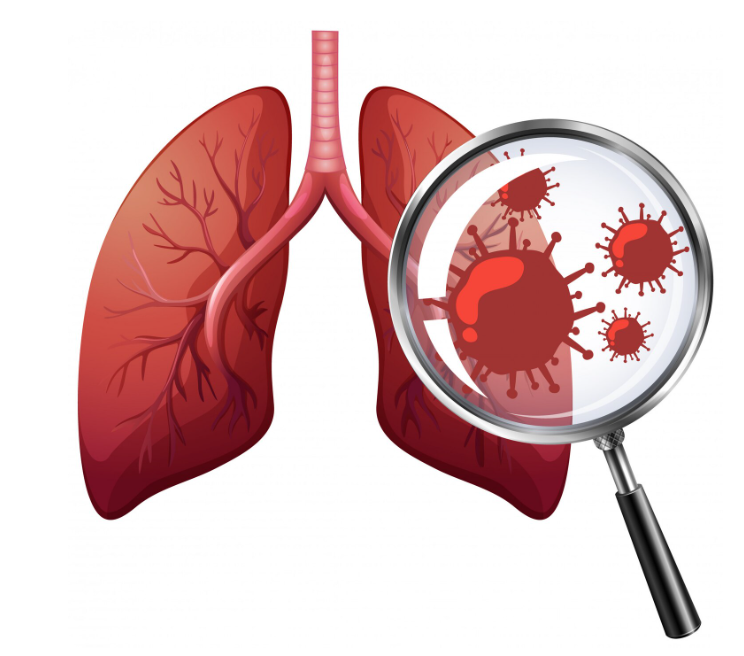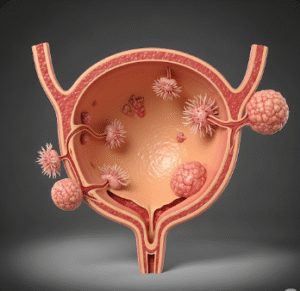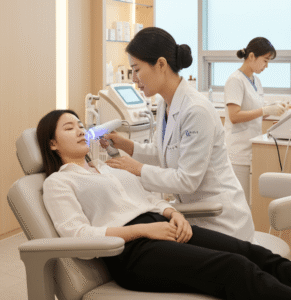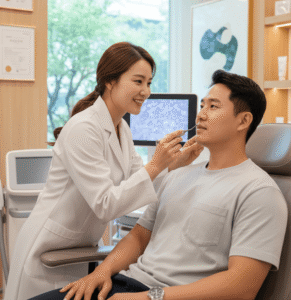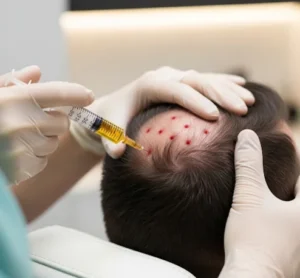Overview
CADASIL (Cerebral Autosomal Dominant Arteriopathy with Subcortical Infarcts and Leukoencephalopathy) is a rare inherited small-vessel disease of the brain. It causes recurrent migraines (often with aura), mini-strokes (TIAs), ischemic strokes, cognitive decline, and mood changes. Onset typically occurs in adulthood (30s–50s). In Korea, tertiary hospitals provide advanced MRI, genetic testing, and multidisciplinary long-term care to help patients preserve function and plan proactively.
What is CADASIL?
CADASIL is caused by mutations in the NOTCH3 gene that affect smooth muscle cells in small arteries, especially in the brain. Progressive vessel damage reduces blood flow, leading to episodes of neurological dysfunction and white-matter injury visible on MRI. It is inherited in an autosomal dominant pattern—each child of an affected parent has a 50% chance of inheriting the mutation.
Symptoms
- Migraine with aura (visual/sensory disturbances), often the first symptom
- Transient ischemic attacks (TIAs) and ischemic strokes (subcortical)
- Cognitive decline (slowed thinking, executive dysfunction), progressing to dementia in some cases
- Psychiatric/mood symptoms (depression, apathy, irritability)
- Gait imbalance, clumsiness, urinary urgency; falls
- Seizures (less common)
Causes
- Pathogenic variants in NOTCH3 disrupt vascular smooth muscle structure and function.
- Resulting small-vessel arteriopathy leads to chronic ischemia and subcortical infarcts.
Risk Factors
- Family history of CADASIL or early strokes/migraines with aura
- Autosomal dominant inheritance (male and female equally affected)
- Traditional vascular risks (smoking, hypertension, diabetes, hyperlipidemia) can worsen outcomes even though they do not cause the disease.
Complications
- Recurrent strokes and cumulative disability
- Cognitive impairment/dementia
- Depression, anxiety, apathy impacting quality of life
- Intracerebral microbleeds (seen on MRI) with potential bleeding risk
- Loss of independence; caregiver burden
Prevention
- The genetic condition itself cannot be prevented. Steps that help reduce complications:
- Aggressive control of blood pressure, lipids, and glucose
- No smoking; limit alcohol; regular exercise and Mediterranean-style diet
- Genetic counseling for patients and at-risk relatives (discussion of testing, family planning, and prenatal options)
- Avoid head trauma and manage sleep, stress, and migraine triggers
Treatment Options in Korea
Diagnosis
- Brain MRI showing white-matter hyperintensities, classically in the anterior temporal poles and external capsule, lacunes, and microbleeds
- Genetic testing for NOTCH3 variants (definitive) available through major Korean labs/hospitals
- Skin biopsy with electron microscopy may show granular osmiophilic material (GOM) when genetic results are inconclusive
- Neuropsychological testing to profile cognition; mood screening
Medical Treatment
- No disease-modifying therapy yet; management focuses on preventing events and treating symptoms
- Vascular risk reduction: antihypertensives, statins when indicated, diabetes control
- Antiplatelet therapy (e.g., low-dose aspirin) often used for secondary stroke prevention—individualize given microbleed burden
- Anticoagulation only for clear indications (e.g., atrial fibrillation) after specialist risk-benefit review due to hemorrhage risk
- Migraine management: avoid vasoconstrictive agents when possible; consider preventives (e.g., topiramate, beta-blockers, valproate as appropriate) and non-vasoconstrictive acute options
- Mood/cognitive symptoms: SSRIs/SNRIs for depression/anxiety; cognitive enhancers may be considered case-by-case
- Seizures: standard anti-seizure medications as indicated
Rehabilitation & Lifestyle
- Stroke rehabilitation (physio/occupational/speech therapy)
- Cognitive rehabilitation and compensatory strategies
- Exercise programs, fall-prevention training, smoking cessation support
- Social work and caregiver support resources
Hospital & Specialist Care in Korea
- Comprehensive care at tertiary centers such as Seoul National University Hospital, Asan Medical Center, Samsung Medical Center, and Yonsei Severance Hospital
- Teams include neurology (stroke & cognitive), medical genetics, neuroradiology, rehabilitation medicine, psychiatry/psychology, and social work
- Access to advanced MRI protocols, genetic counseling/testing, and coordinated long-term follow-up
Family Planning & Counseling
- Genetic counseling for at-risk relatives; discussion of predictive testing
- Prenatal or preimplantation genetic testing (PGT-M) options for families wishing to reduce transmission risk

